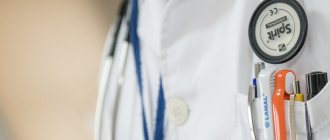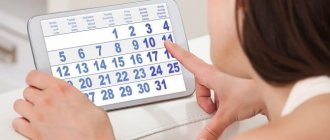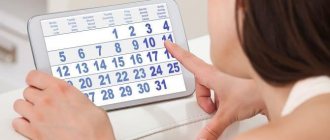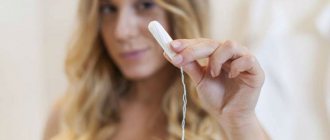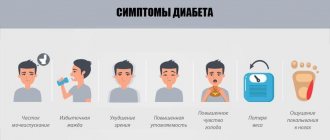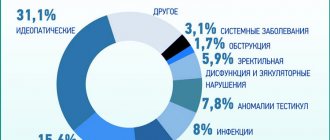General rules:
- For most studies, it is recommended to donate blood in the morning, from 8 to 11 o’clock, on an empty stomach (at least 8 hours must pass between the last meal and blood collection, you can drink water as usual), on the eve of the study, have a light dinner with limited intake of fatty foods. food. For tests for infections and emergency studies, it is acceptable to donate blood 4-6 hours after the last meal.
- ATTENTION! Special preparation rules for a number of tests: strictly on an empty stomach, after a 12-14 hour fast, you should donate blood for gastrin-17, lipid profile (total cholesterol, HDL cholesterol, LDL cholesterol, VLDL cholesterol, triglycerides, lipoprotein (a), apolipo -proten A1, apolipoprotein B), glucose tolerance test.
- On the eve of the study (within 24 hours), avoid alcohol, intense physical activity, and taking medications (in consultation with your doctor).
- 1-2 hours before donating blood, refrain from smoking, do not drink juice, tea, coffee, you can drink still water. Avoid physical stress (running, quickly climbing stairs), emotional excitement. It is recommended to rest and calm down 15 minutes before donating blood.
- You should not donate blood for laboratory testing immediately after physiotherapeutic procedures, instrumental examination, X-ray and ultrasound examinations, massage and other medical procedures.
- When monitoring laboratory parameters over time, it is recommended to conduct repeated tests under the same conditions - in the same laboratory, donate blood at the same time of day, etc.
- Blood for research must be donated before starting to take medications or no earlier than 10–14 days after their discontinuation. To assess the control of the effectiveness of treatment with any drugs, a study should be conducted 7-14 days after the last dose of the drug.
If you are taking medications, be sure to notify your doctor.
General rules apply to all tests, but some tests require special preparation and additional restrictions. It is very important to strictly follow the recommendations below, since only in this case will reliable research results be obtained.
How does the commission assess health status and fitness for service?
The list of all pathologies due to which a conscript may be sent to the reserves, given a temporary deferment, released from service, or taken away to serve, is indicated in the Schedule of Illnesses.
There are 5 eligibility categories in total:
- A - good. The conscript's health is assessed as good. They are sent to serve without restrictions. They are willingly recruited to serve in elite troops.
- B – suitable with minor restrictions. There are minor health problems. A conscript can serve under special conditions.
- B – limited use. The state of health is assessed as average. They are not drafted into the army, they are sent to the reserves. They have the right to call in the event of a declaration of martial law in the country.
- G – temporarily unsuitable. A category in which it is necessary to clarify the diagnosis, confirm the presence of the disease, recover from surgery, and undergo treatment. A temporary deferment is given for 6-12 months, after which a re-examination is scheduled. Based on the results, the commission makes a decision on the final assignment of a fitness category.
- D – not suitable. Health is assessed as poor. Severe diseases, advanced forms, and significant disruption of the functioning of internal organs and systems are diagnosed. Pathologies cannot be treated. The conscript is given a ticket for health reasons and is no longer called to the military registration and enlistment office.
Members of the military commission do not make a diagnosis, but have the right to doubt its correctness. They are referred for additional examination and treatment. To assign categories “B”, “D”, extracts from the medical card, certificates, expert opinions, examination results, long-term observation by doctors, and treatment in a hospital are required.
If a conscript does not agree with the assigned category, violations are observed in the actions of the commission, they go to court and appeal the decision.
General urine analysis
On the eve of submitting urine for analysis, it is not recommended to eat fruits and vegetables that can change the color of urine (beets, carrots, etc.), not to take diuretics, and to avoid significant physical activity.
Before collecting urine, it is necessary to perform a thorough hygienic toilet of the genitals. Women are not recommended to take tests during menstruation.
To properly collect the material, release a small amount of urine (the first 1-2 seconds) into the toilet, and then, without interrupting urination, place a container to collect urine. To donate, you need to collect approximately 50 ml.
The material must be delivered to the laboratory in the morning of the same day. You should not store urine for a long time, because... this leads to a change in its physical properties, the proliferation of bacteria and the destruction of sediment elements.
The most effective means to degrade analysis
As we have already seen, there are many ways to do bad urine and blood tests. And one of them is the use of pharmaceuticals. These include the following drugs:
- "Metformin" - this drug is prescribed quite often. It is often used to treat diabetes, and its use can also negatively affect the result of a urine test.
- Fluoxetine is a popular medication that is prescribed to treat depression; this medication leads to false positive results in urine tests for various types of drugs.
- Amitriptyline is a tricyclic antidepressant that is also used to treat chronic pain, neuropathy and migraine; consuming it may result in a false-positive urine test result, which may indicate the presence of the hallucinogen LSD (lysyrginic acid deethelamide) in the body.
- Labetalol is a beta blocker that is used to control blood pressure and can also show the presence of amphetamine, methamphetamine and LSD in the urine.
- Methylphenidate (Ritalin) is a drug used to treat ADHD and has also been cited as a common cause of false positive tests for amphetamine, methamphetamine, and LSD.
- "Sertraline" - this drug is an antidepressant. It may test positive for the presence of benzodiazepines and LSD.
- Tramadol is a prescription-only drug, which makes it difficult to use. It is used to relieve pain.
- Quetiapine (Seroquel) is an atypical antipsychotic/antipsychotic drug that is often used to treat ailments such as various mental illnesses. A urine drug test in such a case can show the presence of methadone in the body.
Biochemistry
Urea
1-2 days before the study, you must follow a diet: stop eating foods rich in purines - liver, kidneys, and also limit meat, fish, coffee, tea in your diet as much as possible. Intense physical activity is contraindicated.
Cholesterol, lipoproteins
Two weeks before the study, it is necessary to discontinue drugs that lower blood lipid levels, unless the goal is to determine the lipid-lowering effect of therapy with these drugs.
Glucose
When donating blood for glucose (in addition to the basic requirements for preparing for tests), you should not brush your teeth, chew gum, or drink tea/coffee (even unsweetened). A morning cup of coffee will dramatically change your glucose levels. Contraceptives, diuretics and other medications also have an effect.
Glucose tolerance test
It is carried out only if there are preliminary results of determining glucose on an empty stomach, without load. The glucose content in blood plasma is determined on an empty stomach and 2 hours after a glucose load.
It is necessary to follow a normal diet (with a carbohydrate content of more than 125-150 g per day) and adhere to the usual physical activity for three days before the study. The study is carried out in the morning on an empty stomach after an overnight fast for 12-16 hours (during this time you should not smoke or drink alcohol).
During the study, the patient should lie or sit quietly, not smoke, not be overcooled, and not engage in physical activity.
It is not recommended to conduct research after and during stress, after operations and childbirth, during inflammatory processes, alcoholic cirrhosis of the liver, hepatitis, during menstruation, and in gastrointestinal diseases with impaired glucose absorption.
Before the test, it is necessary to exclude medical procedures and medications (adrenaline, glucocorticoids, contraceptives, caffeine, thiazide diuretics, psychotropic drugs and antidepressants).
Discontinuation of medications is carried out only after preliminary consultation of the patient with a doctor.
for CHILDREN UNDER 14 YEARS OLD .
PREGNANT women are recommended to carry out a glucose tolerance test at 24-28 weeks, this allows identifying women with gestational diabetes with an accuracy of 98%.
Haptoglobin
Before the study, it is necessary to exclude the use of drugs: dapsone, methyldopa, sulfasalazine, estrogens, oral contraceptives, tamoxifen, androgens.
Alpha-2-macroglobulin
You must abstain from meat for three days before the test.
FibroTest, FibroMax, SteatoScreen
Blood sampling is carried out strictly on an empty stomach in the morning. It is not recommended to take ascorbic acid 1-2 days before the test; it is also necessary to exclude medications and foods that cause artificial coloration of the serum (carrots, oranges).
To conduct a FibroMax study, you must indicate your exact weight and height.
Reviews
Dear readers, you can leave your review and opinion about the analyzes for the military registration and enlistment office in the comments, your opinion will be useful to other users of the site!
Igor
I was sent to get tested, but I don’t go, and I don’t go. So 2 months. They put my case aside. At the next call, an “invitation” was sent again. And when I arrived, they gave me a fine of 500 rubles, no criminal liability. But I stayed away from them for six months.
Maksim
Not only conscripts try to violate the requirements of the military registration and enlistment office, but they also violate them 100 times more. I came to the military registration and enlistment office, they gave me directions, and a day later they demanded that I appear for a medical examination. It turns out that without analysis they will assign a category! What if I have health complaints?
Hormones
Blood for hormonal studies must be donated on an empty stomach in the morning. If this is not possible, blood can be donated for some hormones 4-5 hours after the last meal in the daytime/evening hours (except for those studies for which blood must be donated strictly in the morning). 1-2 days before the test, exclude high-fat foods from the diet; the last meal should not be large. 1 day before the study, psycho-emotional and physical comfort (calm state without overheating and hypothermia) is necessary.
Thyroid hormones
During the initial check of thyroid hormone levels, discontinue medications that affect thyroid function 2-4 weeks before the test (after consultation with your doctor). When monitoring treatment, exclude taking medications on the day of the study and be sure to note this on the referral form (also note information about taking other medications - aspirin, tranquilizers, corticosteroids, oral contraceptives).
Sex hormones
In women of reproductive age, the results of hormonal studies are influenced by physiological factors associated with the phase of the menstrual cycle. When examining sex hormones, indicate the phase of the menstrual cycle. Hormones of the reproductive system must be taken strictly on the days of the cycle:
- LH, FSH – 3-5 days of the cycle;
- Estradiol – 5-7 or 21-23 days of the cycle;
- Progesterone – 21-23 days of the cycle;
- 17-OH-progesterone, DHA sulfate, testosterone – days 7-9;
- Prolactin - donate blood in the morning at rest; before the study, exclude palpation of the mammary glands.
Anti-Mullerian hormone (AMH/MIS), Inhibin B
For women, the study is carried out on days 3-5 of the menstrual cycle. 3 days before taking blood, avoid intense sports training. The study should not be performed during any acute illness. Do not smoke 1 hour before taking blood.
Adrenaline and norepinephrine
8 days before the study, exclude medications: salicylates, β-blockers. 1 day before the test, you must refrain from heavy physical activity, exclude alcohol, coffee, tea, B vitamins, and bananas.
Renin, angiotensin
Before the study, exclude the use of estrogens (1-2 months before), diuretics (3 weeks before), and antihypertensive drugs (one week before). Blood collection should be carried out in a sitting or standing position.
Aldosterone
In consultation with your doctor, 8 days before the study, discontinue antihypertensive drugs, β-blockers, laxatives, corticosteroids, diuretics, and antidepressants. 3 weeks before the study, discontinue aldosterone antagonists.
ACTH, cortisol
Due to the fact that ACTH and cortisol are stress hormones, you need to calm down and relax for 20 minutes before donating blood. Any stress causes an unmotivated release of these hormones into the blood, which will lead to an increase in this indicator. The level of these hormones changes cyclically throughout the day, so the most informative results are studies conducted in the morning before 9 o’clock.
Insulin, C-peptide
Donate blood strictly in the morning.
Gastrin 17, Gastrin-17 stimulated, pepsinogen I, pepsinogen II, H. Pylori IgG
Blood must be donated for testing on an empty stomach after a 12-hour fast. 1 week before the study, refrain from taking medications that affect gastric secretion: Pepcedin, Zantac, Nizax, Ranimex, Esofex, Losec, Somac, Ranixal, Ranil. 1 day before the study, refrain from taking medications that neutralize hydrochloric acid secreted by the stomach: Alsucral, Balancid, Prepulsid, Metropam, Librax, Gaviscon. If you have difficulty stopping medications, be sure to inform your doctor. 3 hours before donating blood, refrain from smoking.
What happens if you don't get tested?
Each conscript is assigned a fitness category based on a medical examination, laboratory and instrumental examinations. Until the young man provides the necessary information, he cannot be called up for service. The Federal Law “On the Fundamentals of Protecting the Health of Citizens in the Russian Federation” guarantees the right to refuse medical intervention for compelling reasons. Deliberate failure to comply with the requirements of the military registration and enlistment commission is regarded as evasion from military service. In this case, the conscript has the right to be prosecuted under Article 328 of the Criminal Code of the Russian Federation.
Blood tests for infections
1-2 days before the test, exclude high-fat foods from your diet. 2 days before donating blood for viral hepatitis, exclude citrus fruits, orange fruits and vegetables from the diet. The results of tests for the presence of infections depend on the period of infection and the state of the immune system, so a negative result does not completely rule out infection. At an early stage of the disease, seroconversion occurs (absence of antibodies during the acute period of the disease). In doubtful cases, it is advisable to re-test after 3-5 days. A blood test for the presence of IgM class antibodies to infectious agents should be carried out no earlier than 5-7 days from the moment of illness, and IgG and IgA class antibodies no earlier than 10-14 days. This is due to the timing of the production of antibodies by the immune system and their appearance in the blood in the diagnostic titer.
What do doctors check?
A standard examination procedure is mandatory for all conscripts. Based on the results, the state of health is assessed.
- Fluorography. The procedure is needed to assess the condition of the lungs and determine their functional capacity. Many diseases are asymptomatic or have an insignificant clinical picture, so X-ray irradiation is one of the most objective diagnostic methods. Detects tuberculosis, benign, malignant neoplasms, etc.
- General blood analysis. Assess overall health status. Determines the presence of an inflammatory, infectious process. Indicates changes in blood at the cellular level. Deviation of indicators from the norm indicates an active form of the disease, a chronic process.
- General urine analysis. Using this examination method, diseases of the liver, gall bladder, and kidneys are detected. Functioning of the urinary system as a whole.
- Electrocardiogram. It is carried out to detect pathologies of the heart and vascular system.
A blood test for hepatitis, AIDS, HIV infection confirms or denies the disease.
Analysis for enterobiasis
To conduct a laboratory test for enterobiasis, material from the external imprint is taken from the perianal folds. The procedure is carried out immediately after sleep, early in the morning, before defecation and washing. The fence is carried out using a plastic transparent spatula with water-based glue applied to it. To do this, you need to spread the buttocks and apply the spatula with the sticky side to the perianal folds.
After receiving the print, the spatula is placed in a container for transportation. The container label indicates the name and date. The container with the material is delivered to the laboratory; if necessary, it can be stored for 3 days, protected from light at room temperature (+18 - +22C).
A container for collecting material can be taken in advance from the Laboratory office at the address: Obninsk, st. Aksenova, 6a.
Where to submit?
You can undergo the examination at a clinic at your place of residence or at an institution offered by the military registration and enlistment office. Numbers, letters, different meanings in the results do not tell anything to an uninformed conscript. It is advisable to decipher them in advance by going to see a therapist. No one forbids doing this, but it allows you to prepare for what the doctors at the military registration and enlistment office will say. It is also advisable to make photocopies of the results in advance, in case any controversial issues arise.
Rules for collecting stool
Before submitting the material (3-4 days before), you must stop taking medications (laxatives, castor and petroleum jelly, rectal suppositories). Stool obtained after an enema or barium intake (during X-ray examination) is not allowed for examination.
Before collecting the test, urinate in the toilet. Next, by natural defecation, collect the stool in a bedpan (previously washed and dried). Feces are collected in a clean, disposable container, no more than 1/3 of its volume.
The material must be delivered to the laboratory within 3 hours from the moment the analysis is collected. During this period, it is advisable to store the analysis in the cold (+2...+8C), avoiding freezing.
Throat swab
It is necessary to refuse mouthwash solutions and throat sprays because they kill most of the microbes found in the mucous membrane of the pharynx and reduce their numbers to a minimum. As a result, the analysis, of course, will not show the true number of microbes in the mucous membrane and the bacteria that can cause or have already caused the disease will not be detected in the smear. It is advisable not to eat or drink at all on the day of the test, and if possible, it is better to refuse even a glass of water or a mug of coffee in the morning after waking up. Thus, bacteria need to be given free rein and allowed to multiply freely in the mucous membrane for 2-3 days without exposing them to various antibacterial agents, and only then can the real picture be seen.
Results
As you can see after reading the above tips and recommendations from doctors, making a urine test false will not be so difficult. You just need to purchase certain medications or use the simpler methods given above. Their prices are quite reasonable, and there won’t be any problems finding them. But please note that most of them can have a detrimental effect on the body. For example, the use of drugs can lead to disruption of other organs and systems. And this will require additional therapy. That is, it is worth considering whether it is necessary to use such methods or whether it is better to abstain.
Smear in women
At least 36 hours must pass after the last sexual intercourse.
If you were treated with antibiotics, you must first complete the course of treatment, and then wait at least 3 weeks before taking the test.
You cannot take a smear test if women are menstruating or have uterine bleeding.
Before taking a smear, you should not wash yourself, much less use antibacterial soap.
You should not urinate for at least 3 hours before the test. The rule applies to both women and men.
If women have not yet completed treatment, they are taking medications, inserting vaginal suppositories, they must tell the doctor about this, then they cannot take a smear.
